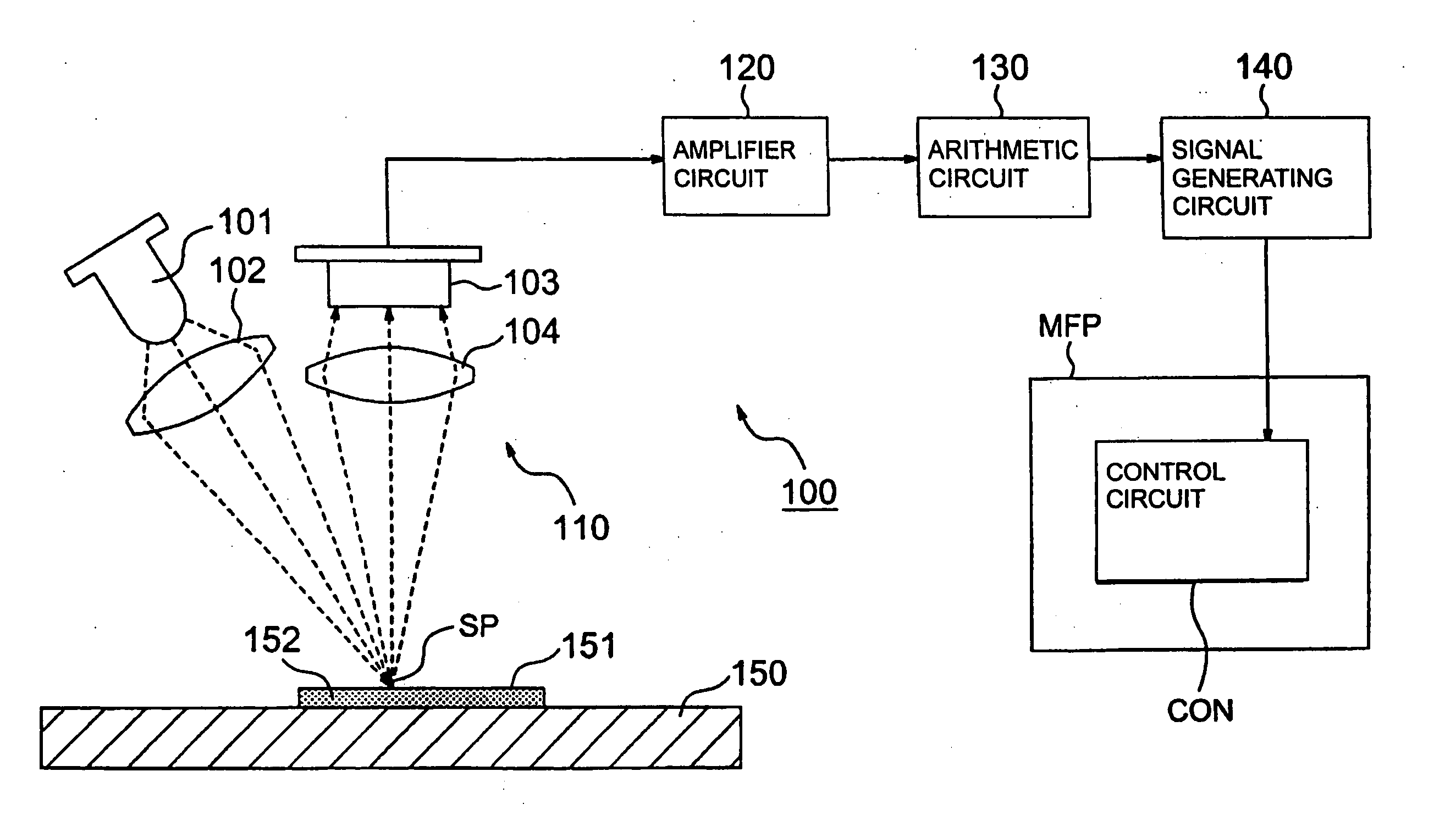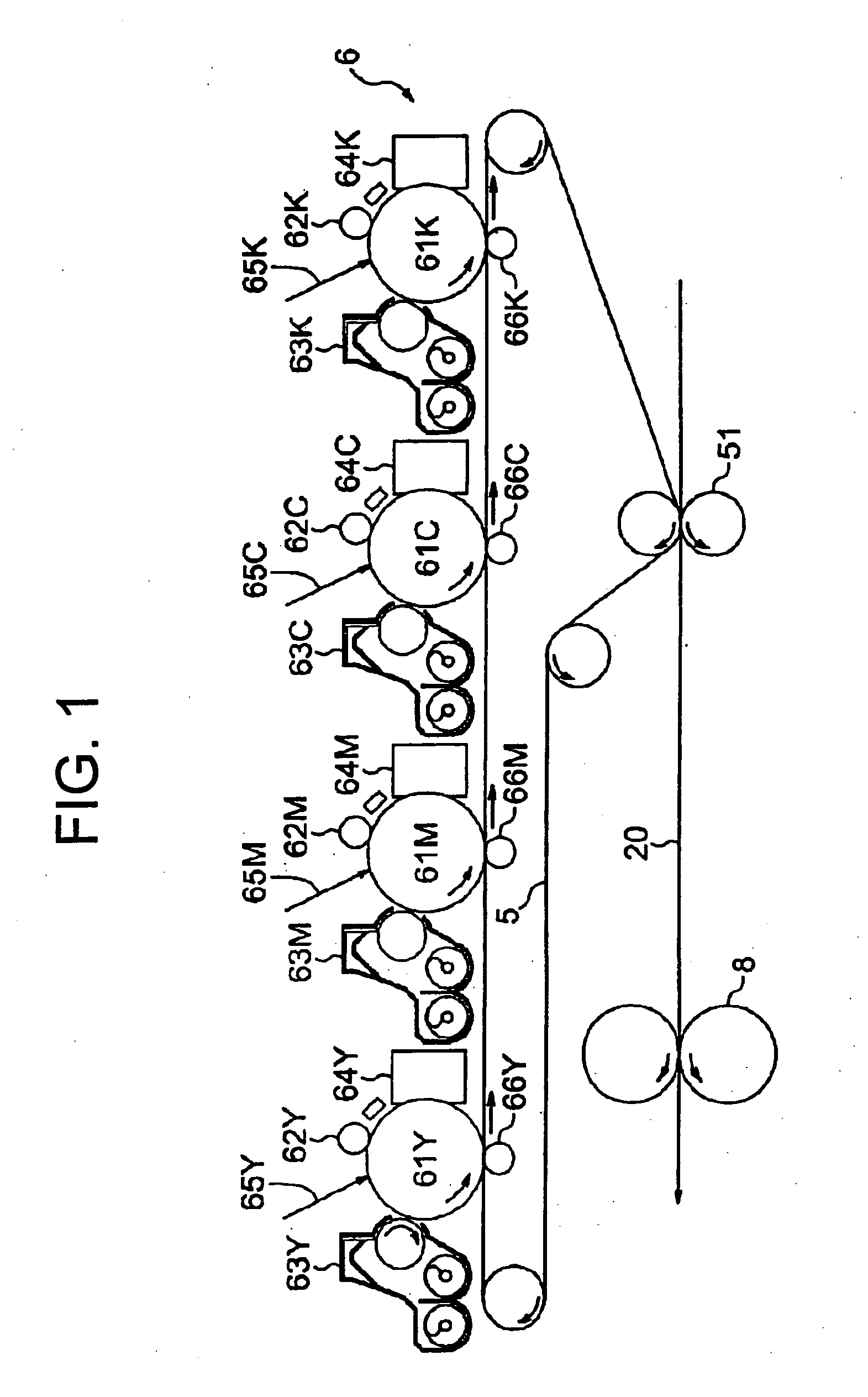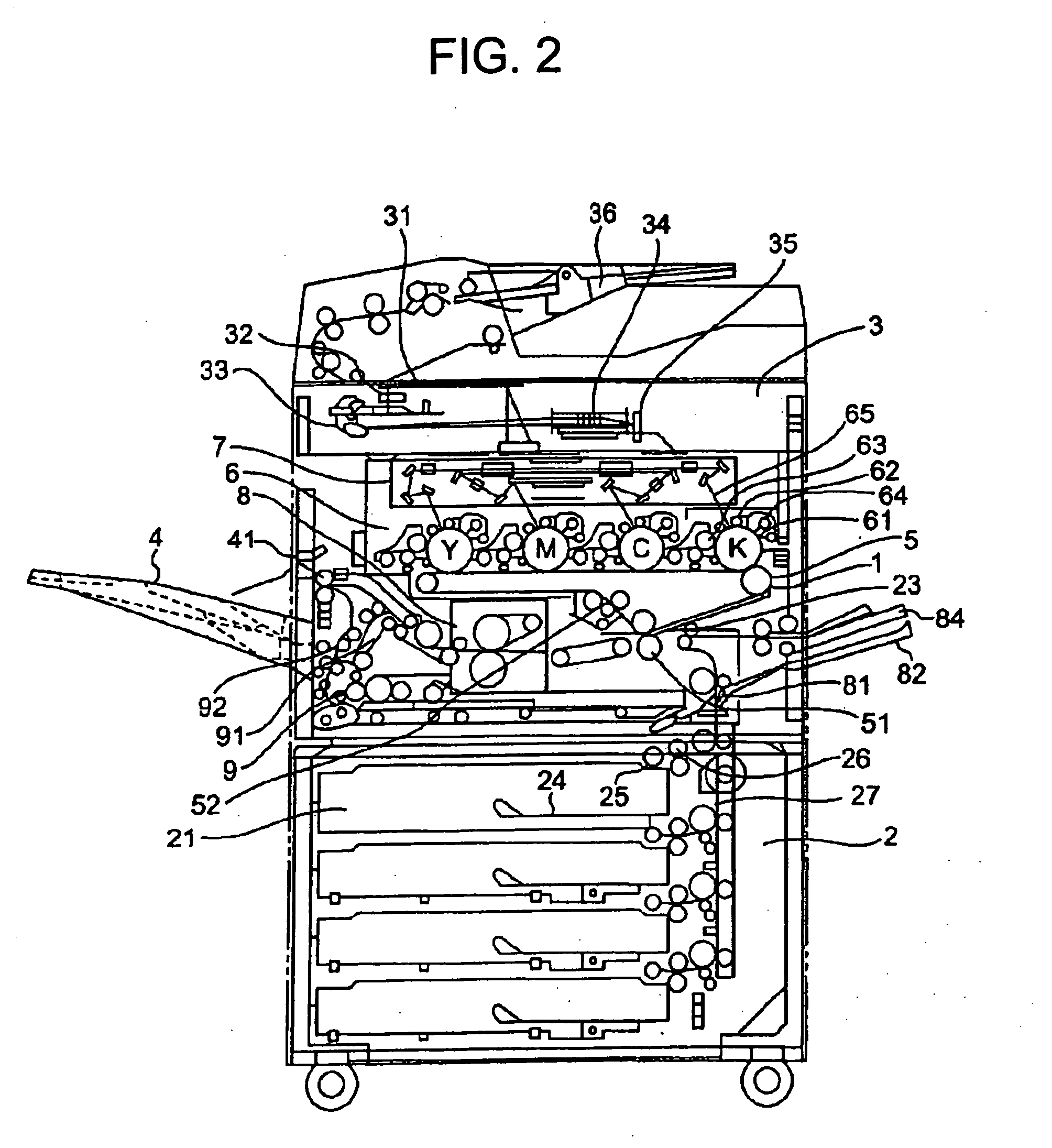Image quality detecting apparatus, image forming apparatus and method, and image quality controlling apparatus and method
a technology of image quality and detection apparatus, which is applied in the direction of electrographic process apparatus, instruments, printing, etc., can solve the problems of no reports on measures to detect image quality, no control of image forming conditions, and no reports on image quality detection measures, etc., to reduce density unevenness, reduce density unevenness, and reduce density unevenness
- Summary
- Abstract
- Description
- Claims
- Application Information
AI Technical Summary
Benefits of technology
Problems solved by technology
Method used
Image
Examples
first embodiment
[0101] this invention will be explained below.
[0102] 1.1 General Structure
[0103]FIG. 1 shows an image forming unit of a full-color image forming apparatus of a dry type two-component developing system that is furnished with tandem arranged photoreceptor drums as latent image carriers according to the first embodiment. FIG. 2 is a general view of the full-color image forming apparatus equipped with the image forming unit.
[0104] As shown in FIG. 2, the image forming unit 1 is disposed at about a center of the tandem type color image forming apparatus MFP according to the first embodiment, and a paper feeding unit 2 is disposed beneath the image forming unit 1, and the paper feeding unit 2 includes a plurality of trays 21. Furthermore, a reading unit 3 to read a document is arranged above the image forming unit 1. A paper discharging tray 4 as a discharged paper storage unit is equipped in downstream of a paper transfer direction (shown in the left side of FIG. 2), and is loaded with...
second embodiment
[0188] this invention will be explained below.
[0189] In the first embodiment, an example in which a spot is collected on the image pattern 151 with the collective lens 102 as shown in FIG. 6 and light reflected from the image pattern is collected on the image formation surface of the photoelectric conversion element 103 through the image forming lens 104, is explained. However, it is possible to guide light through an optical fiber as shown in FIG. 36. FIG. 36 is a schematic diagram of an image quality measuring apparatus according to the second embodiment. The example shown in FIG. 36 is different from the first embodiment shown in FIG. 6 in that a first optical fiber 105 and a second optical fiber 106 and an objective lens 107 are disposed in the apparatus. Therefore, only the different points will be explained.
[0190] That is to say, in the second embodiment, an end of the first optical fiber 105 is disposed at a light collecting point of the collective lens 102, and the other en...
third embodiment
[0195] this invention will be explained below.
[0196] This embodiment is an example of the image forming apparatus furnished with the tandem type image forming units shown in FIG. 1 that is provided with the image quality measuring apparatus in the second embodiment. FIG. 38 shows a structure of the third embodiment.
[0197] As shown in FIG. 38, the third embodiment is provided to detect the quality of an image on the photoreceptor 61 and the quality of an image on the intermediate transfer belt by the sensor unit 112 having the pair of light-emitting device 101 and light-receiving device 103. In this embodiment, the sensor unit 112 is movable by a moving unit (not shown), between positions on one side of fiber units 111a to 111e that are fixed in a line based on a time division. The sensor unit 112 as one unit also consists of the LED (a light-emitting device) 101, the photoelectric conversion element (light-receiving device) 103, the collective lens 102, and the image forming lens 1...
PUM
 Login to View More
Login to View More Abstract
Description
Claims
Application Information
 Login to View More
Login to View More - R&D
- Intellectual Property
- Life Sciences
- Materials
- Tech Scout
- Unparalleled Data Quality
- Higher Quality Content
- 60% Fewer Hallucinations
Browse by: Latest US Patents, China's latest patents, Technical Efficacy Thesaurus, Application Domain, Technology Topic, Popular Technical Reports.
© 2025 PatSnap. All rights reserved.Legal|Privacy policy|Modern Slavery Act Transparency Statement|Sitemap|About US| Contact US: help@patsnap.com



